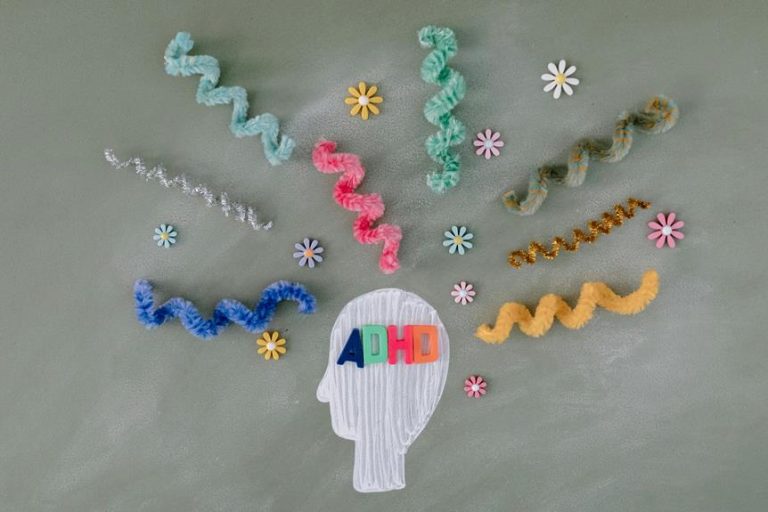Adhd Ableism
Oh, the delight of traversing a world where ADHD is often dismissed as mere laziness or a lack of discipline. The eye-rolls and sighs when accommodations are requested, the subtle disbelief when medication is mentioned—it's a thrilling journey, let me tell you.
But, there's more to this tale than meets the eye. Stay tuned to uncover the layers of ableism faced by individuals with ADHD and the impact it has on their daily lives.
Key Takeaways
- Ableism towards ADHD perpetuates stigma and discrimination.
- Internalized ableism harms self-esteem and mental health.
- Healthcare providers may unintentionally discriminate against ADHD individuals.
- Overcoming ADHD ableism is vital for self-acceptance and empowerment.
Impact of Societal Misconceptions on ADHD

Societal misconceptions surrounding ADHD perpetuate stigma and discrimination, hindering acceptance and support for individuals with the condition. The stigma around ADHD is fueled by societal biases that question the legitimacy of ADHD as a neurodevelopmental disorder. Misunderstandings and lack of awareness lead to harmful stereotypes and biases, creating an environment where individuals with ADHD face judgment and skepticism.
These misconceptions not only impact individuals on a personal level but also have broader societal implications. The societal impact of these misconceptions is significant, as it can limit access to appropriate resources and support systems for those with ADHD. Discrimination rooted in these misconceptions exacerbates the challenges individuals with ADHD already face, making it harder for them to receive understanding and accommodations.
Addressing and dispelling these misconceptions is vital in creating a more inclusive and supportive environment for individuals with ADHD.
Lack of Accommodations in Education

Students with ADHD often face a lack of essential accommodations in educational settings, greatly impacting their academic performance and overall well-being. Discrimination against people with ADHD can manifest in the form of inadequate support for their unique needs. The educational system may not always recognize the challenges associated with an ADHD diagnosis, leading to a lack of tailored accommodations. This absence of support can result in significant academic struggles related to organization, time management, and task completion.
Accommodations play a vital role in mitigating the impact of ADHD symptoms on students' ability to succeed in school. Simple adjustments such as extra time for tests, breaks during long periods of focus, or the use of assistive technology can make a world of difference for individuals with ADHD. By providing these necessary accommodations, educators can create an environment that fosters academic growth and supports the well-being of students with ADHD. It's imperative that educational institutions prioritize the implementation of accommodations to ensure the success of all learners, including those with ADHD.
Prejudice Towards ADHD Symptoms

Prejudice towards ADHD symptoms often manifests as skepticism about the legitimacy of the challenges individuals with ADHD face in their daily lives. This skepticism can lead to dismissal or minimization of the struggles experienced by those with ADHD, perpetuating stigma and ableism. When society doubts the validity of ADHD symptoms, individuals may feel invalidated and isolated, further exacerbating their difficulties. Misconceptions surrounding ADHD symptoms contribute to this prejudice, hindering individuals from receiving the necessary accommodations and support they require to thrive.
The misconception that ADHD symptoms are exaggerated or controllable without assistance can prevent individuals from accessing appropriate treatment and understanding. This lack of acknowledgment of the real impact of ADHD symptoms on daily functioning can create barriers to inclusivity and support. By challenging these prejudices and promoting a better understanding of ADHD symptoms, we can work towards creating a more inclusive and accommodating environment for individuals with ADHD.
Strategies for Promoting Inclusivity

To enhance inclusivity for individuals with ADHD, implementing tailored accommodations and support systems is crucial. When creating neurodiverse-friendly spaces, sensory accommodations can make environments more welcoming for those with ADHD.
Flexible schedules can provide the necessary structure and flexibility needed to manage ADHD symptoms effectively. Clear communication and expectations are essential in reducing misunderstandings and fostering inclusion.
Additionally, offering ADHD awareness training can enhance understanding and support inclusivity in various settings. Encouraging acceptance of diverse communication styles can also create a more inclusive environment for individuals with ADHD.
Harmful Effects of ADHD Ableism

Experiencing the harmful effects of ADHD ableism can greatly impact the well-being and sense of self-worth in individuals with ADHD. People with disabilities, including ADHD, often face discrimination and stigma in an important society. Internalized Ableism, stemming from societal misconceptions, can lead to feelings of shame, self-doubt, and low self-worth among those with ADHD. Health professionals, sometimes unintentionally, discriminate against people with ADHD, hindering access to proper diagnosis, treatment, and support.
The emotional dysregulation commonly associated with ADHD can be exacerbated by the harmful effects of ableism, further impacting the mental health of individuals. Overcoming ADHD ableism is essential for promoting self-acceptance and empowerment in those with the condition. By challenging negative stereotypes and advocating for inclusivity and understanding, we can work towards creating a more supportive environment for individuals with ADHD, where they're valued for their unique strengths and contributions.
Frequently Asked Questions
What Is an Example of Ableism Adhd?
Referring to ADHD as a 'behavioral problem' or a lack of discipline perpetuates stereotypes. It's imperative to understand the neurodiversity behind it. Advocating for educational accommodations, workplace acceptance, and support systems is essential in combatting ableism.
Can ADHD Be Considered a Disability?
Yes, ADHD can be considered a disability. It impacts cognitive functioning, requiring workplace accommodations and educational support. Social stigma and neurodiversity acceptance are important, along with accessible resources and mental health awareness to facilitate inclusion.
Is ADHD Considered an Intellectual Disability?
I don't consider ADHD an intellectual disability. It's a neurodevelopmental disorder that impacts attention and behavior, not intellectual functioning. Differentiating between the two is essential for providing appropriate support, accommodations, and understanding in educational and social settings.
Is ADHD a Disability When Applying for a Job?
When applying for a job, individuals with ADHD can request accommodations under the ADA. Discrimination in the workplace should not hinder job performance. Stigma reduction, support networks, and legal protections are essential for equal opportunities.
Conclusion
In the garden of neurodiversity, the weeds of ADHD ableism threaten to choke out the beautiful blooms of acceptance and understanding.
By recognizing and uprooting these harmful misconceptions, we can cultivate a more inclusive and supportive environment for all individuals, regardless of their neurological differences.
Let's nurture empathy and compassion, allowing the diverse flowers of humanity to flourish in harmony.







